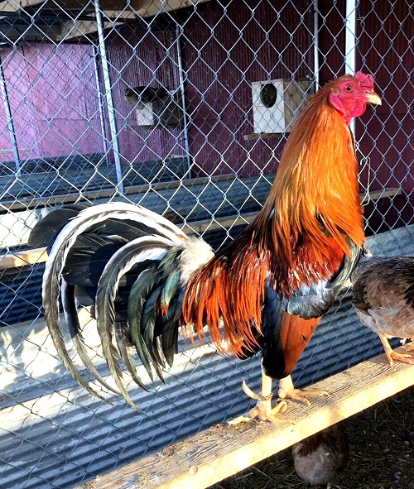The World of Gamefowl: A Deep Dive into Kelso Roosters
The World of Gamefowl: A Deep Dive into Kelso Roosters
Blog Article

Gamefowl, also known as fighting cocks, have been part of human culture for thousands of years, particularly in various regions across Asia, Europe, and the Americas. These birds have been bred for their strength, agility, and competitive spirit, making them a central figure in the traditional sport of cockfighting. Among the many breeds of gamefowl, the Kelso rooster stands out for its exceptional qualities and history. This article will explore the fascinating world of gamefowl, with a particular focus on the Kelso rooster.
#### Understanding Gamefowl
Gamefowl are domesticated chickens specifically bred for the sport of cockfighting. Over the centuries, various breeds have emerged, each with unique characteristics that make them suitable for competition. The breeding of gamefowl is a meticulous process that involves selecting birds based on their physical traits, temperament, and fighting ability.
##### Historical Context
Cockfighting dates back to ancient civilizations, with evidence of the practice found in historical accounts from civilizations such as the Greeks, Romans, and even the Chinese. Over time, different regions developed their own breeds of fighting cocks, leading to the diverse world of gamefowl we see today. The rise of cockfighting as a popular sport has led to the establishment of breeding practices that focus on creating birds with superior fighting capabilities.
The Kelso Rooster: A Breed Apart
Among the various breeds of gamefowl, the Kelso rooster holds a special place. Originating in the United States, the Kelso breed was developed in the early 20th century by a breeder named John Kelso, who aimed to create an exceptional fighting bird. The Kelso rooster is known for its unique combination of agility, intelligence, and fighting prowess.
##### Characteristics of the Kelso Rooster
1. **Physical Appearance**: Kelso roosters are typically medium to large in size, with a well-proportioned body. They have strong legs and a robust build, which contribute to their agility in the arena. The plumage of Kelso roosters can vary, but they often have striking colors that make them visually appealing.
2. **Temperament**: One of the defining traits of Kelso roosters is their spirited nature. They are known for their high energy levels and assertive behavior, which are crucial for their performance in fights. However, they can also be friendly and social when properly raised.
3. **Fighting Style**: Kelso roosters are celebrated for their unique fighting style. They tend brown red gamefowl to be quick and strategic, often using their speed to outmaneuver opponents. This breed is also known for its resilience, allowing it to endure tough fights and come out on top.
4. **Breeding**: The breeding of Kelso roosters is a careful and intentional process. Breeders select birds based on specific traits, including strength, agility, and temperament. The goal is to enhance the desirable characteristics while minimizing any weaknesses.
Popularity and Legacy
The Kelso rooster has gained a loyal following gamefowl farms among gamefowl enthusiasts and breeders. Its reputation for excellence in the arena has made it a sought-after breed for both competitive and recreational purposes. Many breeders strive to maintain the purity of the Kelso line, ensuring that the breed continues to thrive.
#### Raising Gamefowl: Best Practices
Raising gamefowl, including Kelso roosters, requires a commitment to their health and well-being. Here are some best practices for raising gamefowl:
1. **Housing**: Gamefowl need a spacious and secure environment where they can roam and exercise. A well-ventilated coop with proper bedding is essential for their comfort.
2. **Nutrition**: A balanced diet is crucial for the health of gamefowl. High-quality feed that includes protein, vitamins, and minerals will support their growth and fighting abilities.
3. **Socialization**: Gamefowl are social animals that thrive in the presence of others. It’s important to socialize them from a young age to ensure they develop healthy behaviors.
4. **Health Monitoring**: Regular health checks are vital to prevent diseases and ensure the well-being of the birds. Vaccinations and parasite brown red gamefowl control should also be part of their care routine.
5. **Training**: Training is an important aspect of raising gamefowl. This includes physical conditioning and exposure to various stimuli to prepare them for competition.
#### The Ethics of Gamefowl and Cockfighting
The practice of cockfighting is controversial and has faced significant legal and ethical scrutiny. While some see it as a traditional sport, others view it as inhumane. In many countries, cockfighting is illegal, and there are ongoing debates about the treatment of gamefowl. Responsible breeders prioritize the welfare of their birds, ensuring they are treated humanely and ethically.
The world of gamefowl, particularly the Kelso rooster, is rich with history, tradition, and passion. While the practice of cockfighting raises ethical questions, the breeding and care of gamefowl can be approached with a sense of responsibility and respect for the animals. Kelso roosters, with their unique characteristics and fighting prowess, continue to captivate enthusiasts and maintain their legacy in the world of gamefowl. Whether viewed as athletes or companions, these birds hold a special place in the hearts of many, representing a blend of culture, competition, and care.
dabwoods disposable
Cali packs